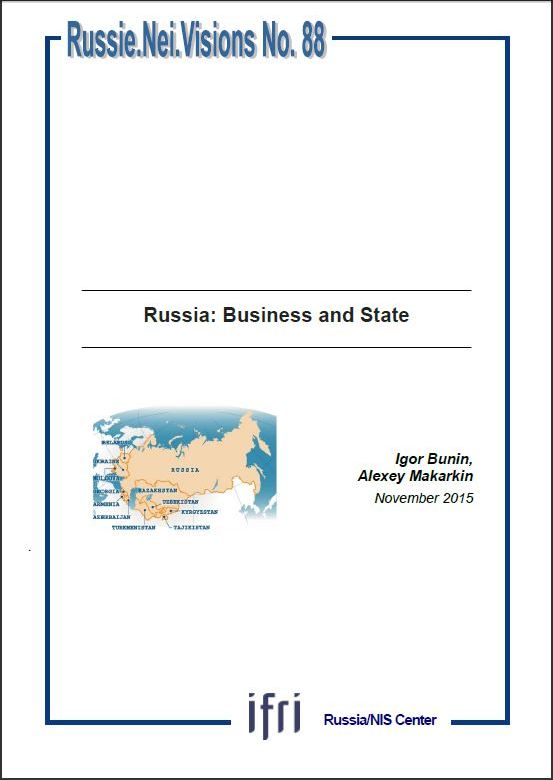Russia: Business and State

Business in Russia today is closely intertwined with the political sphere. But the forms of business’s involvement in politics have differed radically at different stages in history. Initially, business played an active role, displacing the government from its position due to its vigorous expansion. Subsequently, the state began to regroup, reinforcing its positions not just in politics but in the market too. Despite increased economic uncertainty and enormous changes in Russia’s foreign policy positions, the government currently remains the central actor in both Russian politics and the economy.
That state of affairs is unlikely to change significantly in the short term.
Given the domestic economic crisis and tensions in relations with the West, the Russian business community is currently falling back on the development of its own individual strategies. These are aimed not so much at growth as at survival in the new conditions. At the same time, Russian experience shows that private initiative is capable of survival in the most unfavorable of circumstances. A new “leap forward” of the kind seen in the 1980s and 1990s is unlikely thanks to the fact that the main players are older than they once were, the underlying economic structures have ossified in the meantime and there is no longer the same drive (though this has not disappeared altogether). Nevertheless, the possibility of private enterprise being reenergized should not be ruled out.
Dr Igor Bunin is the president of the Center for Political Technologies and director of the <Politcom.ru> website.
Alexei Makarkin is first deputy director of the Center for Political Technologies.
Download the full analysis
This page contains only a summary of our work. If you would like to have access to all the information from our research on the subject, you can download the full version in PDF format.
Russia: Business and State
Related centers and programs
Discover our other research centers and programsFind out more
Discover all our analysesThe Caspian Sea as an Emerging Energy Hub : Potentials and Limitations
This report analyzes the prospects of the Caspian Sea region — and its key actors except for Russia and Iran — becoming an important energy hub serving the needs of the European Union (EU).
The European Union's Strategic Test in Georgia
The political crisis brewing in Georgia is of an existential nature for the country. What is at stake is Georgia's future as a democratic and sovereign European nation (EU).
Commanders of Putin's Long War: Purged, Reshuffled and Disgruntled
The trend of reshuffling the Russian top military command in the course of a fast-evolving and far from successful war has progressed unevenly both across the Armed Forces’ structures and in time. The rationale for and timing of the abrupt cadre decisions made by Commander-in-Chief Putin often defy logical explanation, and the rare official clarifications are no more informative than the usual information blackout.
Russian Military Manpower After Two and a Half Years of War in Ukraine
In addition to a military victory in Ukraine, the Russian leadership is planning to build up sizable troop formations for a possible conflict with NATO in the Baltic region and the Kola Peninsula. In particular, current plans aim for the military manpower to grow by about 350,000, reaching a total of 1.5 million soldiers and commanders. In the context of the current conflict in Ukraine, this cannot be accomplished without a new wave of mass mobilization.









